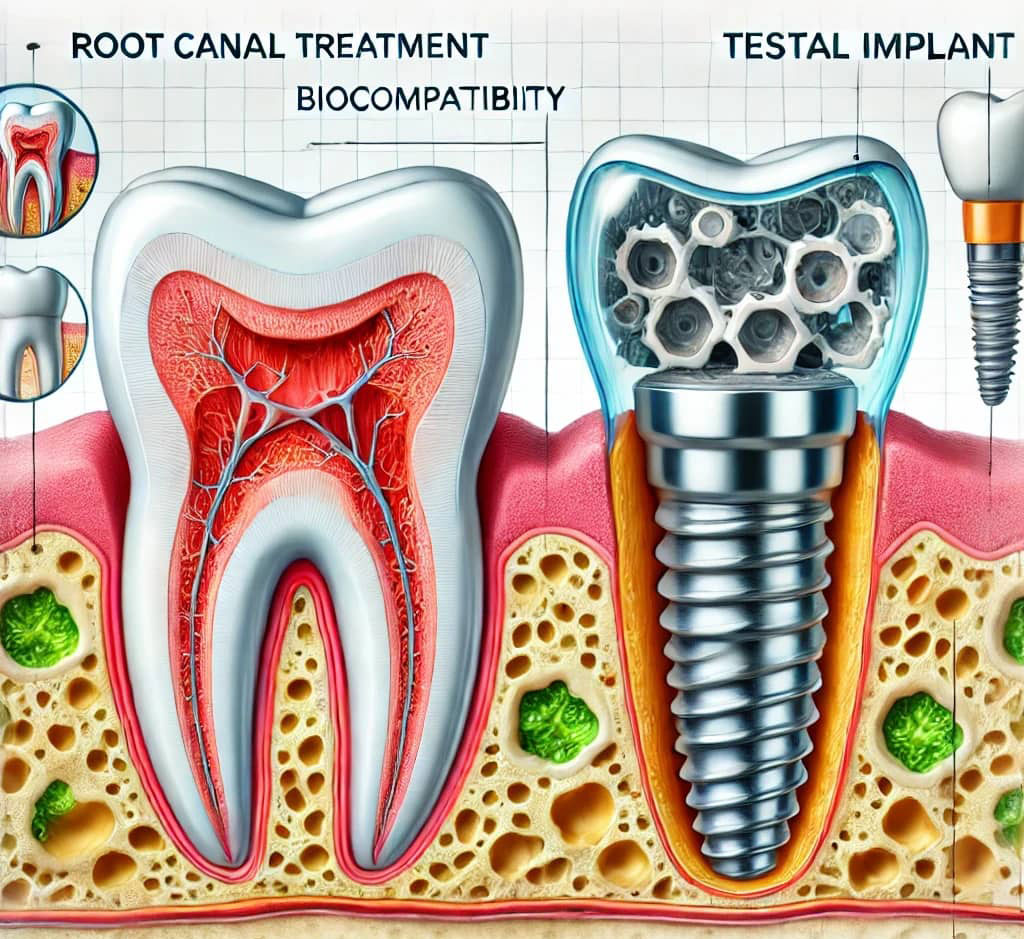
Bioceramics, such as MTA (Mineral Trioxide Aggregate) and Biodentine, have become advanced alternatives to traditional materials in root canal treatments due to their unique properties. These materials play a key role in modern dentistry, helping to achieve faster healing and more successful treatments.
Key Features
- Perfect Biocompatibility: These materials easily integrate with oral tissues and prevent negative reactions. Unlike traditional materials, bioceramics, instead of causing sensitivity or inflammatory reactions, aid the body’s natural tissues in better regeneration.
- Antibacterial Properties: Bioceramic materials like MTA and Biodentine have a natural ability to combat infections. This feature helps prevent post-root canal infections and reduces the need for antibiotics.
- Tissue Repair and Regeneration: One of the most important benefits of these materials is their ability to stimulate the natural regeneration of tissues. Particularly in filling root canals, these materials promote the regeneration of the tissues surrounding the root, aiding in faster healing.
Research conducted at the University of North Carolina and the Forsyth Institute has shown that MTA and Biodentine, due to their exceptional properties, have achieved excellent results in the regeneration of dental tissues and root canal treatments.
Applications
- Root Canal Filling: Bioceramics like MTA, due to their high resistance to moisture and stimulation of tissue regeneration, are highly effective in root canal treatments.
- Dental Implants: The use of biocompatible materials in implants increases the lifespan of the implant and reduces complications. These materials also help the bone naturally regenerate around the implant.

